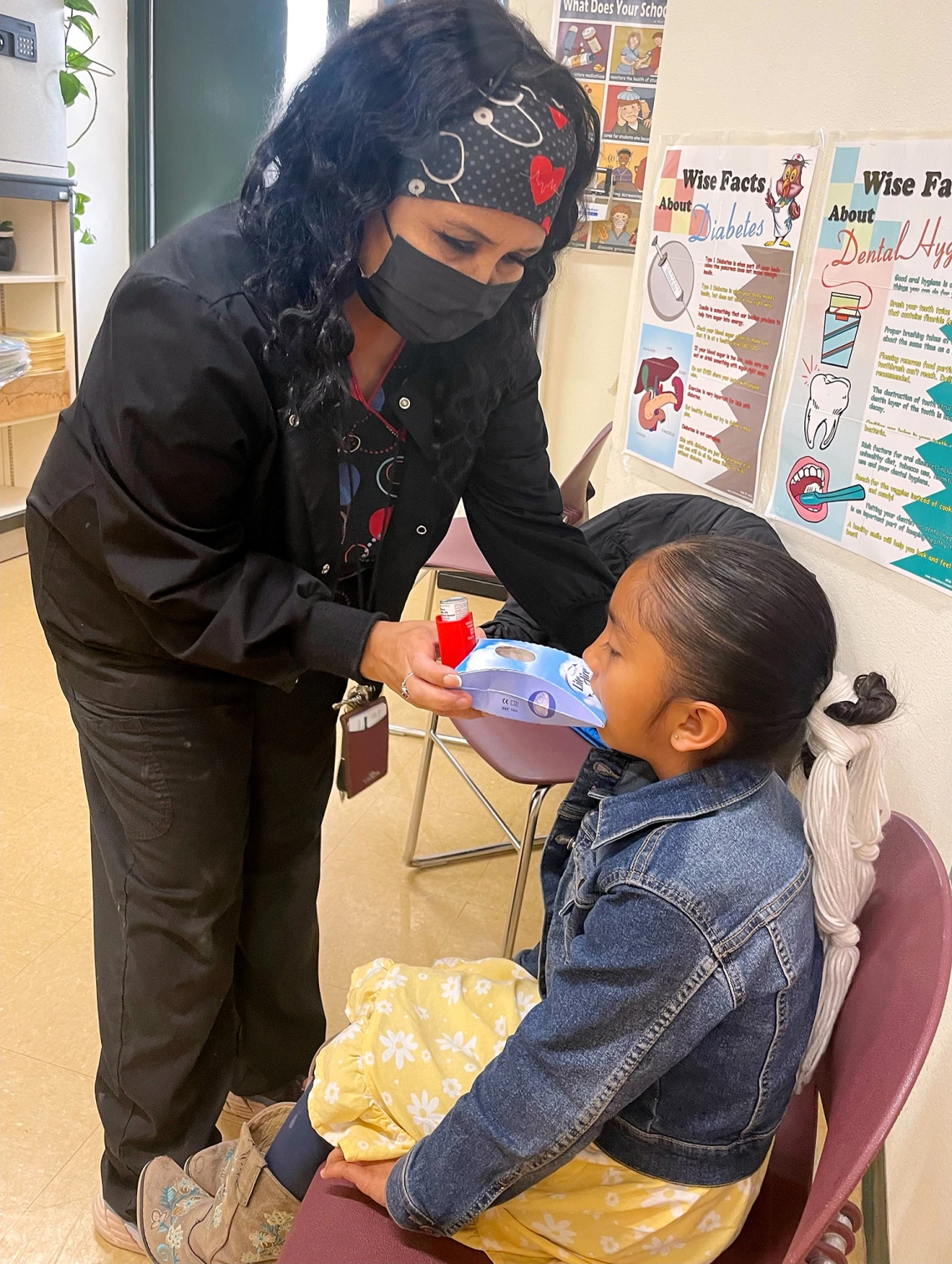U of A College of Nursing expands lifesaving asthma program to tribal nations and rural counties

The University of Arizona (U of A) College of Nursing, a leading institution in healthcare and research, has been awarded a $400,000 grant to significantly expand the reach of the Stock Inhaler for Schools (SIFS) program in partnership with the Arizona Asthma Coalition. The grant, titled “Empowering Communities: Amplifying the Reach of the Stock Inhaler for Schools Program in Rural Counties and Tribal Nations through Strategic Partnerships,” is generously funded by Mercy Cares, a not-for-profit health plan serving the Arizona Health Care Cost Containment System. This is the second time Mercy Cares has supported this crucial project. In 2023, the program received $325,000 from the health plan.

The SIFS program, initiated by Ashley Lowe, PhD, MSPH, U of A College of Nursing Assistant Professor, and Research Scientist as well as Research Scientist at U of A’s Asthma and Airway Disease Research Center, has been instrumental in addressing one of the most pressing health concerns for children — asthma. The program provides Arizona schools with a stock of albuterol sulfate inhalers, a lifesaving rescue medication for students experiencing respiratory distress. This latest expansion aims to reach the state’s most medically underserved areas, particularly rural communities and Tribal Nations, where access to healthcare services is limited and emergency response times are long.
Thanks to Lowe’s efforts, in 2020, Arizona became the first state to implement and publish data, establishing the program as a national exemplar. “As a community-engaged translational scientist, my goal is to bring research out of the lab and into the communities that need it most,” said Lowe. “The SIFS program has been a labor of love for almost a decade. We have made significant strides, from passing legislation in 2017 allowing schools to stock and administer albuterol sulfate to students experiencing respiratory distress to expanding resources and training from a few schools to over 800. However, we recognize that many rural and tribal-serving schools remain underserved. Our commitment is to ensure that all children in Arizona, regardless of location, have access to lifesaving medication at school, and we will continue to expand our program to reach these critical communities.”
The program provides much-needed resources and support to schools, including stock albuterol inhalers, disposable valved-holding chambers, web-based training for K-12 personnel, and a comprehensive toolkit to ensure effective implementation. Since the beginning of the 2024-25 school year, over 2,200 school personnel have completed the training. The program has also significantly reduced asthma-related 9-1-1 calls and emergency medical transports, with 79% of students able to return to classroom instruction following the administration of the rescue inhaler.
“Part of the college’s mission is to address healthcare challenges and promote health, equity, and inclusiveness,” said Brian Ahn, PhD, dean of the College of Nursing. “I cannot think of a more vital project to fulfill this mission than ensuring Arizona schools have the knowledge and tools they need to treat students with a life-threatening condition like asthma. Dr. Lowe’s work is invaluable to the health of our communities.”
Asthma is a chronic, life-altering condition affecting approximately 4.5 million children across the United States. In 2021 alone, more than 145 children under the age of 18 lost their lives to asthma attacks. With an asthma prevalence rate of 6.5% among school-aged children and only 12-15% of students nationwide having access to these vital interventions, the need for access is critical. The disparity is even more pronounced in Arizona’s Native American communities, where the asthma prevalence rate is nearly double, reaching up to 22%.
“Ensuring access to lifesaving interventions like rescue inhalers is crucial,” said Dr. Sheila Gephart, Professor and Interim Chair of the Advanced Nursing Practice and Science Division at the U of A College of Nursing. “I am proud of the University of Arizona’s role in expanding the SIFS program. This grant strengthens our efforts in providing critical asthma care resources and training to K-12 school nurses and staff, particularly in rural and tribal communities.”
Arizona is home to 22 federally recognized tribes, but as of 2024, fewer than ten schools serving predominantly Native American students have enrolled in the program. This underrepresentation reflects broader health inequities that persist in rural and Tribal Nations, exacerbated by logistical barriers and limited resources.
As the program expands into rural counties and tribal areas, the U of A College of Nursing will collaborate with county health departments, superintendents, and public health agencies to streamline the process. This interdisciplinary effort ensures that asthma emergencies are managed swiftly and effectively. The SIFS program is the largest sustained, school-based stock medication initiative in the U.S. and is a model for similar programs nationwide.

